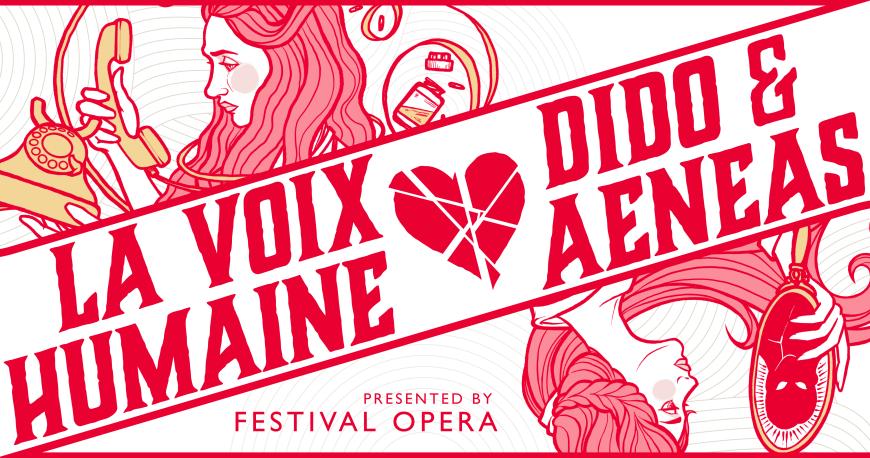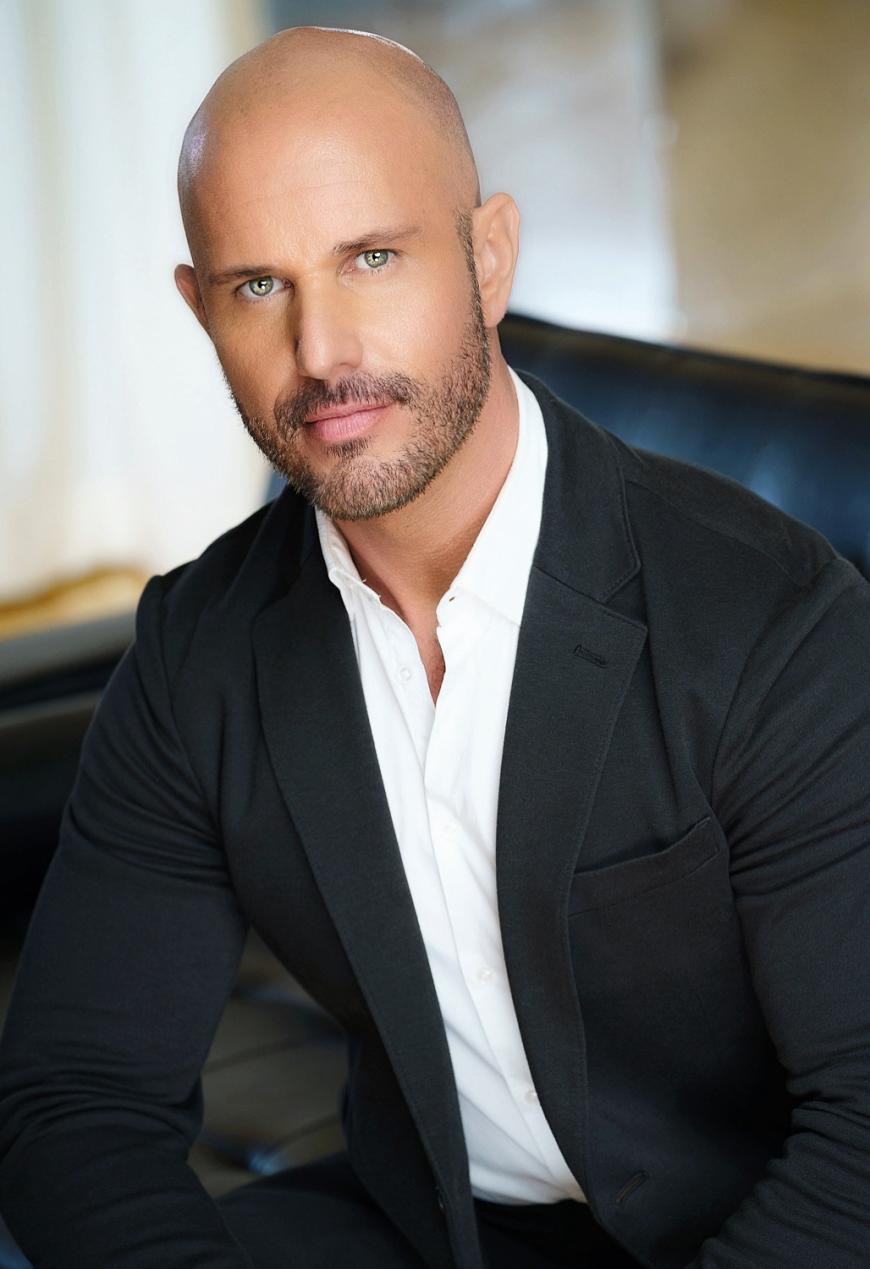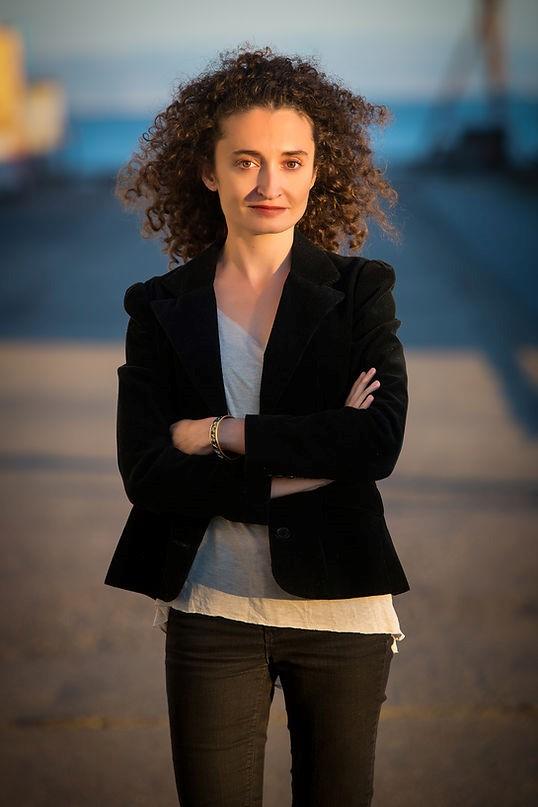
Call it the little opera company that could. Festival Opera, founded in 1991 with a mission to “educate, enlighten, and entertain” as well as preserve and advance the operatic art form, went through some rough times recently, COVID-19 included. But the Walnut Creek-based company is continuing to thrive thanks to Zachary Gordin, who has helped reshape the organization, first as artistic advisor, then as artistic director, and finally as general director since 2020. The company recently launched its 2024 season with two free Opera in the Park concerts for the community.
Festival Opera continues its season with an innovative double bill of short operas on themes of love, loss, and betrayal: Francis Poulenc’s gripping 1958 monodrama La voix humaine (The human voice) and Henry Purcell’s Baroque masterpiece Dido and Aeneas. The works will be performed July 12 and 14 at the Hofmann Theatre at the Lesher Center for the Arts in Walnut Creek.

Explained the Oakland-born Gordin, who is also a teacher, conductor, harpsichordist, and acclaimed baritone: “I’m so proud of what this organization has been able to do — and that this community has trusted me with this organization — because Festival Opera was on the chopping block. [The late] Michael Morgan [the company’s former artistic director] sat me down in 2018 and told me that this is what I was going to do with my life. ‘You have all of the skill sets that are needed to reanimate this organization, and it’s time for you to think about being an impresario.’”
Part of the job, of course, is programming. Gordin pointed out that working with an annual budget of $350,000 has meant that “in a lot of ways, I’ve gotten to do and say things that are artistically valuable. It’s certainly not glamorous, [but] I’m a roll-up-your-sleeves-and-get-dirty [kind of guy]. I want the work to be good and the production values to be astronomically high. And we have a wonderful community of collaborators — orchestra players, designers, and others — who have made my work so much easier.”
As for programming the Poulenc and Purcell operas together, Gordin explained that he thinks the lead characters in both stories “are so much the same person. ‘La voix’ and Dido — in my production, the concept is as [Poulenc’s soprano is] going through a conversation with her lover, she’s drinking and taking pills and eventually slips off into a coma. As she’s in this dream, she has this imagining of a relationship that Dido and Aeneas could have had.
“For me, Dido and Aeneas is the dream,” said Gordin, “and it also does not end well. It’s super effective to frame it in that way.”
Carrie Hennessey sings the solo role of Elle in La voix, with onstage conducting and accompaniment by pianist Robert Mollicone. For Dido, mezzo-soprano Kindra Scharich makes her company debut as the title queen, with Sara Couden as the Sorceress and Festival Opera veteran Matthew Lovell as Aeneas. Gordin conducts from the harpsichord, leading members of the company’s orchestra and chorus, with artists from Diablo Ballet also making their first appearances with Festival Opera.

Staging both works and also making her company debut is Céline Ricci, who is the founder and executive artistic director of the San Francisco-based Ars Minerva, which engages new audiences for classical music through innovative productions of Baroque operas.
“Céline is so brilliant,” gushed Gordin. “She wants to tell the story in a way that is clear, engaging, and colorful. In Act 1, there are lots of neons and bright fuschias; for Dido, it’s very grayscale, so in that way, there’s this juxtaposition of visuals in each story.
“And she’s a dream to work with,” he added about Ricci. “I was singing in [Carlo Pallavicino’s 1679 opera] Messalina [in 2021] for Ars Minerva, so we’ve had that relationship.”
Festival Opera’s season continues in the fall with its Artist Recital Series at Piedmont Center for the Arts: In September, Scharich will be accompanied by pianist Jeffrey LaDeur; in October, Couden will be joined by keyboardist Derek Tam; and in November, Gordin will perform with pianist Daniel Lockert.
“I am forcing myself out of semi-retirement,” admitted Gordin, who not only plays harpsichord but builds them as well.
“I’m a restless soul. … I’m currently working on [a harpsichord] for Dido, and it’s almost done. I started building harpsichords when I was 15, [when] my musical life [was] as an organist. Baroque music has always factored in heavily [for me], and you don’t just go and buy [a harpsichord]. You either find one or you make it.”
Gordin said he has either built or rebuilt some 43 harpsichords. “I think I do it for the zen of it, for getting grounded — to keep myself away from [things] getting too heavy.”
Which, in a sense, is how he leads Festival Opera, collaborating in ways that uplift and lead the opera world toward a more innovative and accessible future. And with Gordin’s reverence for musical tradition, his passion for excellence, and his modern and socially progressive vision, the company would seem to be in fine hands for years to come.




